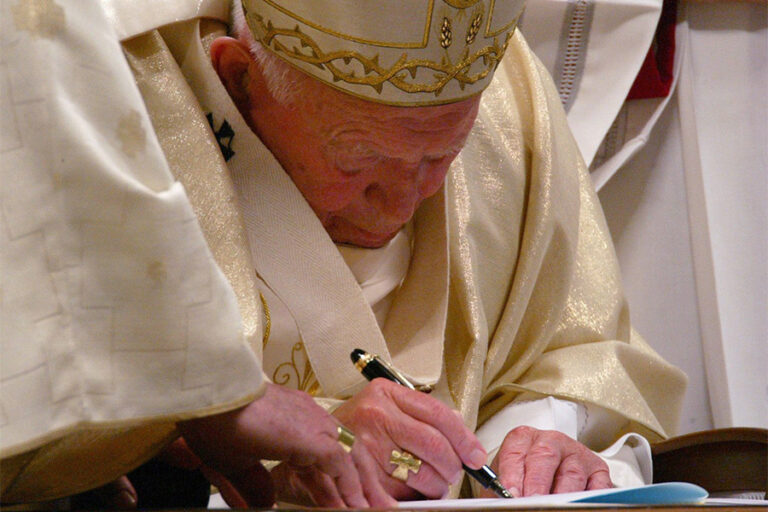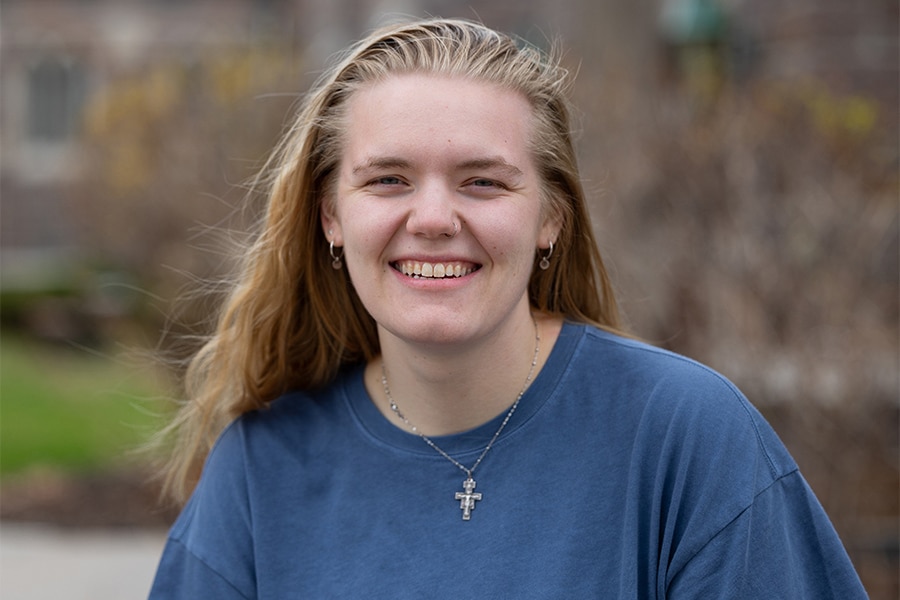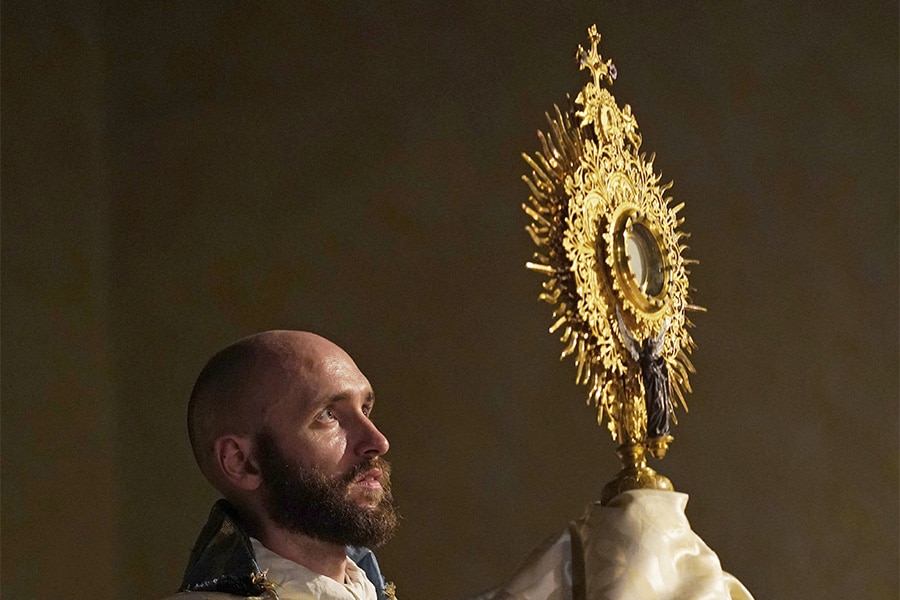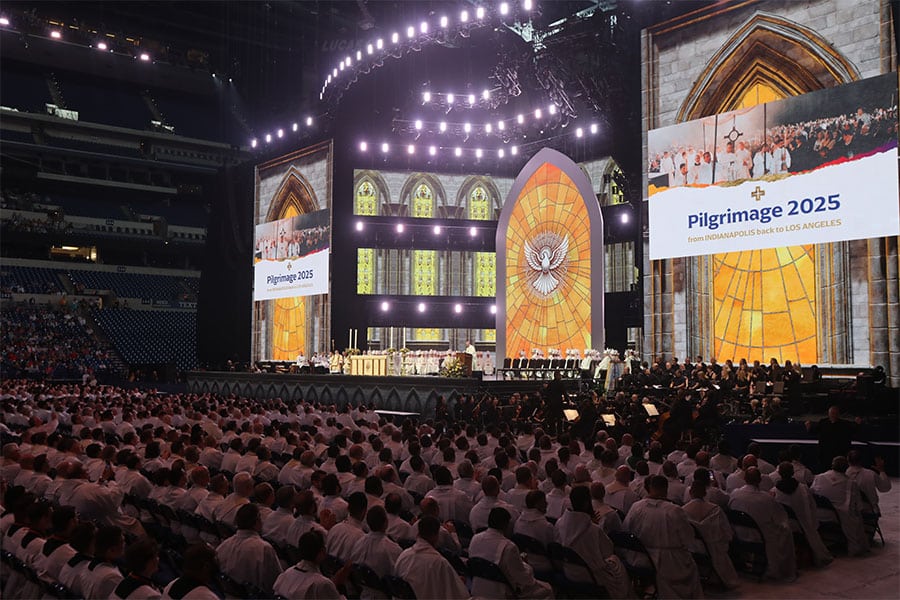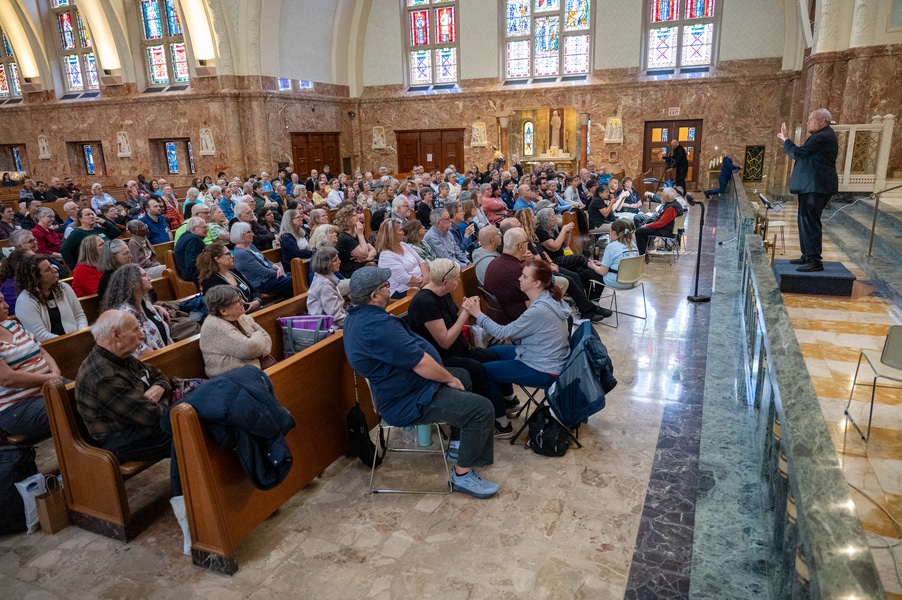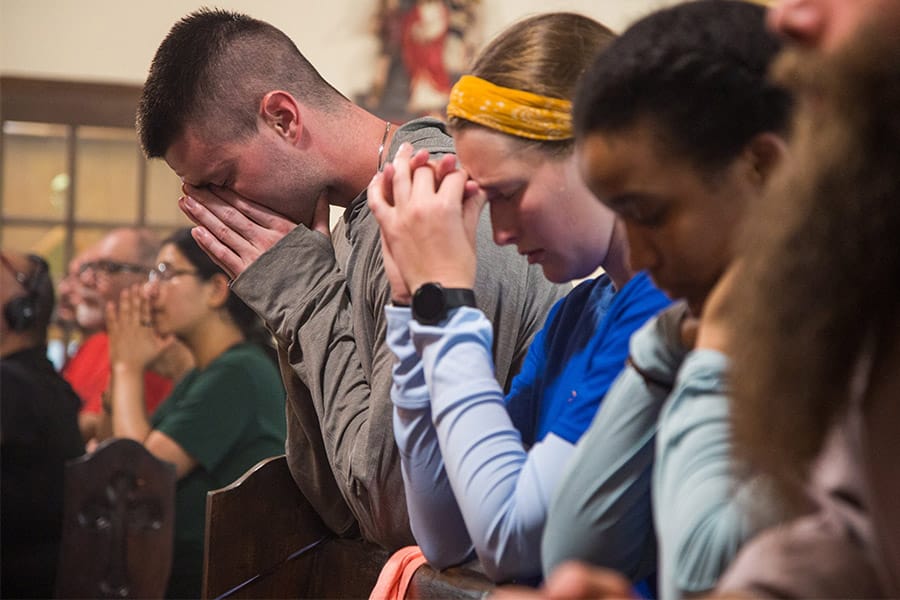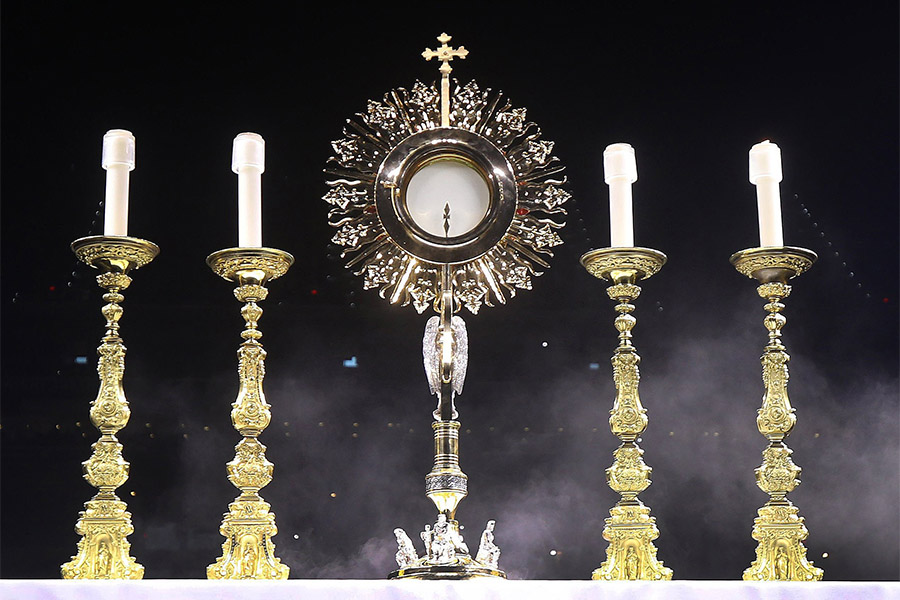The church calls the Eucharist “the source and summit of the Christian life,” made clear at the Second Vatican Council and reiterated in the Catechism of the Catholic Church (see No. 1324). In the Eucharist we receive our savior Jesus Christ and participate in his paschal mystery: his passion, death, resurrection and ascension. “Each member of the faithful can … take part in (the Eucharist) and inexhaustibly gain its fruits,” St. John Paul II wrote in his 2003 encyclical “Ecclesia de Eucharistia.”
Since the Eucharist is so closely connected with Jesus, we may forget that this “central event of salvation” crowns many millennia of preparation. Long before Jesus instituted the Eucharist at the Last Supper, God began the saving plan that would lead to people partaking in the Body and Blood of Jesus. Throughout salvation history, as reported in the Old Testament, we can recognize the foreshadowing of the Eucharist, particularly in the details of the Passover meal. The New Testament shows how Jesus established the groundwork for the continual celebration of the Eucharist.
At the dawn of creation, after God formed man and woman, human beings sinned by wanting to define good and evil themselves instead of yielding to God’s word. The consequences of their sin are detailed in the first chapters of Genesis, but the main result is the loss of original harmony with God and with each other. God’s response demonstrates his perfect justice and mercy. He allows the consequences to follow, but he does something more — he initiates his plan to save the people through his son.
The first foreshadowing of God’s plan is found at Genesis 3:15, where God addresses the serpent who tempted the first human beings to sin: “I will put enmity between you and the woman, and between your offspring and hers. They will strike at your head, while you strike at their heel.”
Reading this verse in the light of Christ, the church calls it the “protoevangelium,” or the first Gospel. The woman foreshadows Mary and the child foreshadows Jesus, who by offering himself for the forgiveness of sin will defeat the serpent (the devil) and restore the original harmony between God and humanity.
God continues his saving plan by forming covenants with humanity, and his people respond by offering sacrifices — for example, Noah in Genesis 8:20 and 9:9-13, and Abraham in Genesis, chapters 15-22. A covenant is more than a contract. The latter is a quid pro quo. A covenant is a strong bond sealed by the word of the two parties. In his covenants God promised to be with his people, and the people pledged loyalty to God. Whereas humanity has continually broken its covenants with God, God has remained faithful.
The people’s sacrifices to God manifested their gratitude for his care and their desire for his forgiveness. The sacrifice was usually an animal. A notable exception is the sacrifice of bread and wine offered by Melchizedek in thanksgiving to God for granting Abraham victory over his enemies (see Gn 14:18–20). The church recognizes Melchizedek’s sacrifice as a foreshadowing of the Eucharist.
The primary event in the Old Testament that foreshadows the Eucharist is the Passover, which contains a covenant, a sacrifice and a meal (see especially Ex 12). God delivers the Israelites from the Egyptians, and to mark this event the Israelites are to sacrifice an unblemished lamb, spread the blood over the door and eat the lamb with unleavened bread, which without yeast can be cooked quickly. The angel of the Lord would pass over the homes of the Israelites, saving them from death and allowing them to flee. They are to commemorate this event forever.
As the Israelites leave Egypt, they journey in the presence of God, who continues to care for them. God opens the Red Sea so the Israelites can escape the pursuing Egyptians. He feeds them in the desert with manna, bread from heaven. Through Moses’ intercession, the people enter a covenant with God, agreeing to obey his commandments and offering a sacrifice. Moses sprinkles the blood of the sacrifice on the people, marking their assent.
The Jewish people down to the present time have celebrated the Passover meal. By partaking of the sacrificial lamb, unleavened bread and wine, they believe that God’s saving deeds are made present in their lives. Passover reminds them that they must live by the word of God, who has remained faithful to his promises.
The Eucharist shares many of the aspects of a Passover meal. Jesus, in fact, instituted the Eucharist during a Passover meal that he celebrated with his apostles on the night before he died (see Lk 22:7–20; Mt 26:17–29; Mk 14:12–25). Even before this meal, Jesus had already referred to himself as “the bread of life” (Jn 6:35), surpassing the manna God gave to the Israelites. During the meal Jesus says that the bread that is broken is his body and the wine that is poured out is his blood. He offers himself as the lamb of sacrifice and establishes a new covenant.
“By celebrating the Last Supper with his apostles in the course of the Passover meal, Jesus gave the Jewish Passover its definitive meaning. Jesus’ passing over to his father by his death and Resurrection, the new Passover, is anticipated in the Supper and celebrated in the Eucharist, which fulfills the Jewish Passover and anticipates the final Passover of the Church in the glory of the kingdom” (CCC 1340).
The Resurrection demonstrates the faithfulness of God to his word: Through Jesus, by the power of the Holy Spirit, death has been defeated and eternal life won. After his resurrection, Jesus shares a meal with his disciples, reinforcing the enduring character of his sacrifice. Whenever the church gathers together at the Eucharist, Jesus and his gifts of salvation are made present.
When reflecting on the Eucharist in the context of salvation history and in light of the biblical text, we can see how God prepared the world to receive Jesus as the one, true sacrifice and mediator of the divine covenant. Since Jesus is God, he “brings to perfection all human attempts to offer sacrifices” (CCC 1350). Jesus keeps his word to the Father and to us.
The Eucharist is not only the source and summit of the Christian life; it is the new and everlasting covenant that reconciles perfectly God and humanity. When we come before God now, we do not have to offer a scapegoat. United to Jesus in the Eucharist, we offer to the Father his one and only Son, the perfect lamb of sacrifice.
The church has never ceased to celebrate the Eucharist, handing on what it received from the Lord: “(Every day) they devoted themselves to the teaching of the apostles and to the communal life, to the breaking of bread and to the prayers” (Acts 2:42).

